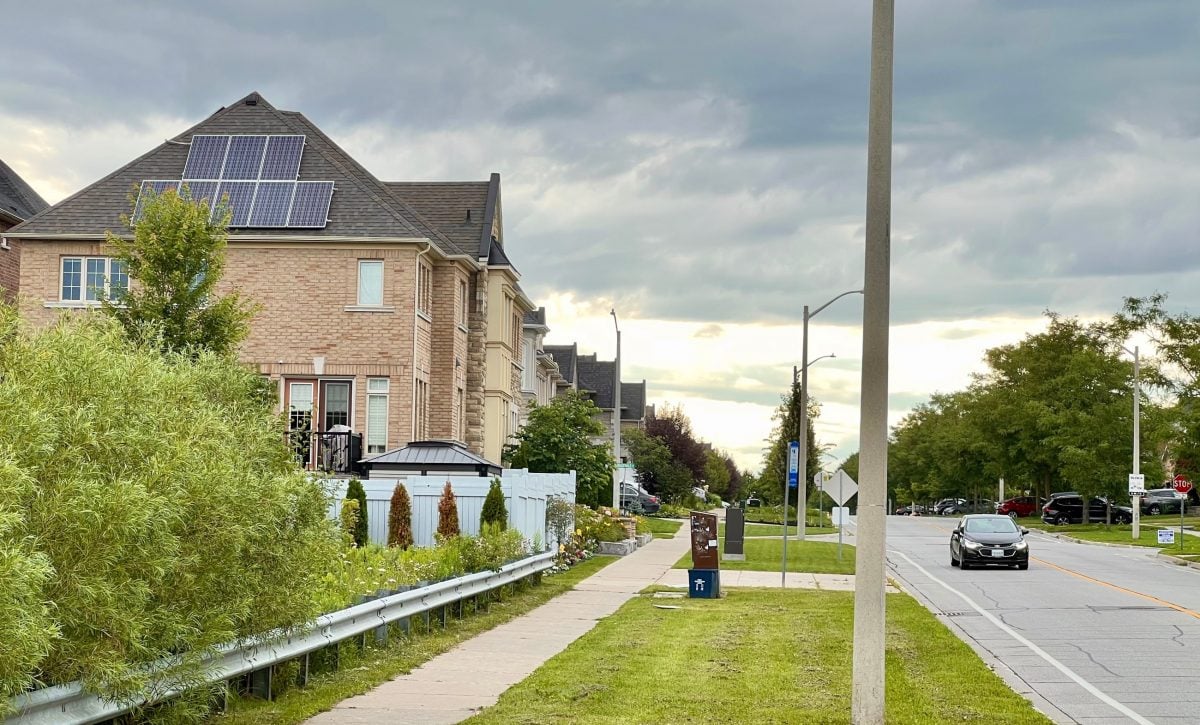As the world strives toward a greener future and combats the challenges of climate change, one crucial area of focus is transitioning to renewable energy sources. With the rising popularity of electric vehicles, it’s becoming increasingly important for homeowners to ask how the energy they use is being generated. By aligning the power source for their vehicles with sustainable energy generation, homeowners can make a significant impact on reducing carbon emissions, and foster a cleaner, healthier world.
Addressing Climate Change Head-On
We have all seen firsthand the effects of climate change during the summer of 2023, as global temperature records are being shattered, and most of our country is under extreme heat advisories. The primary motivation for transitioning to renewable energy is the urgent need to address the climate change emergency. The burning of fossil fuels to power 2.3 billion homes and 334 million businesses worldwide, as well as individual and commercial transportation, contributes to the emission of 10,000 Million metric tons of greenhouse gases annually, which trap heat in the atmosphere and lead to global climate change. By choosing renewable energy to power homes, businesses, and vehicles, homeowners can significantly reduce their carbon footprint, as renewable sources produce little to no greenhouse gas emissions during operation.
Lowering Emissions and Air Pollution
Transitioning to electric vehicles alone helps reduce local air pollution since they produce zero tailpipe emissions. However, if EVs are charged using electricity generated from fossil fuels, the overall emissions reduction benefits may be limited as air pollution is just created somewhere else. By adding renewable energy sources to their homes, EV drivers can ensure that the electricity used to charge their vehicles comes from clean, sustainable sources such as solar, and wind. This synergy helps create a double impact, reducing local air pollution and greenhouse gas emissions in general.
Energy Independence
Traditional energy sources, such as coal and oil, are subject to price fluctuations and geopolitical tensions, making energy costs unpredictable. Renewable energy, conversely, offers homeowners a path to energy independence and resilience. By generating their own electricity through solar panels or wind turbines, homeowners can decrease their reliance on the grid and shield themselves from rising energy costs. They can also take advantage of energy storage solutions to store excess energy generated during the day for use during peak demand times or in case of power outages. Home batteries are becoming more affordable and common, storing enough energy to run your home throughout the night when the sun doesn’t shine.
Financial Savings
Switching to renewable energy can have significant financial benefits for homeowners, especially when combined with the adoption of electric vehicles. While the inial costs of installing renewable energy systems may seem daunting, the long-term savings are most often substantial. Homeowners can save money on monthly energy bills by generating their own electricity and reducing their reliance on increasingly expensive fossil fuels. Additionally, some governments and utility companies offer incentives, tax credits, and rebates to encourage the adoption of renewable energy and energy-efficient vehicles and appliances, further offsetting the inial costs.
Promoting Technological Innovation
By installing renewable energy sources in your home, you are contributing to a reduction in greenhouse gasses today, while also investing in green technologies for tomorrow. When adopting solar panels, wind turbines, or other renewable energy systems, homeowners become part of a more significant movement that drives innovation and creates jobs in the renewable energy sector. This technological advancement will lead to better and more affordable renewable energy solutions in the future, benefiting society as a whole. It is the responsibility of individuals, businesses, and governments to actively make better choices toward a greener future.
Final Thoughts
The switch to electric vehicles is an exciting step towards a more sustainable transportation future. However, to maximize the positive impact, it is essential for homeowners to align the power source for their EVs with renewable energy generation at home. By doing so, homeowners can significantly reduce their carbon footprint, lower emissions, improve air quality, achieve energy independence, save money, and promote technological innovation. The collective effort of individual homeowners transitioning to renewable energy sources will play a vital role in creating a greener, cleaner, and more sustainable world.
Justin Walsh – Solar Energy Consultant

Justin Walsh is an experienced professional in the electrical construction industry, with a diverse background that spans over a decade. With his expertise and hands-on experience in electrical systems, project management, and renewable energy, Justin is dedicated to driving the growth and adoption of sustainable energy solutions. Justin is based out of Tampa, Florida.

